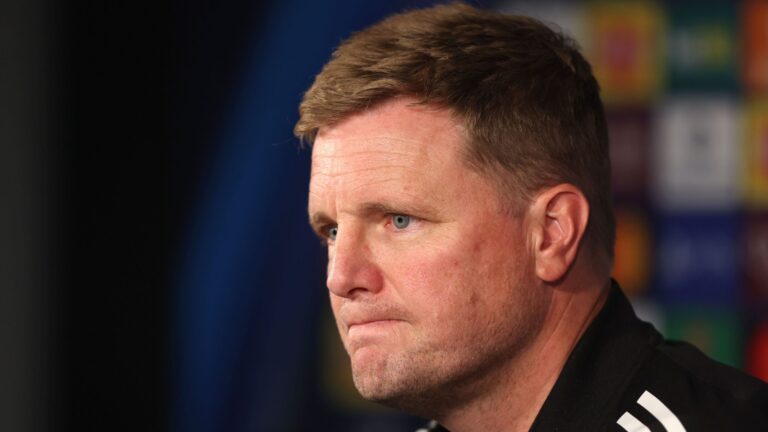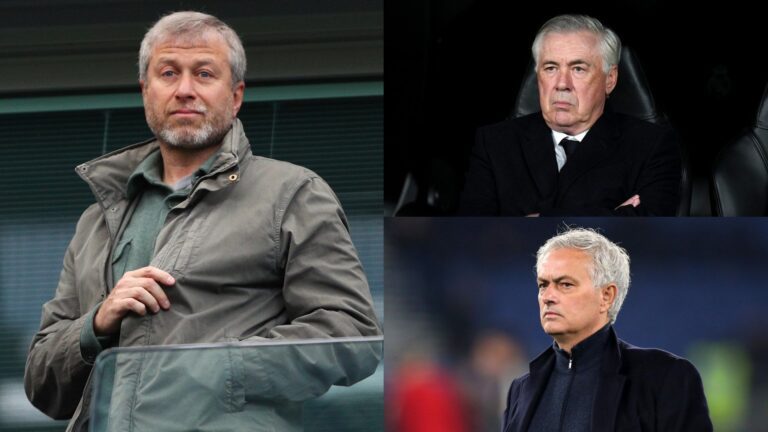West Ham United Bids Farewell to Graham Potter: A Pivotal Shift in Premier League Aspirations
Graham Potter‘s departure from West Ham United marks a critical turning point for the club, as they grapple with ongoing challenges in the Premier League. This unexpected move comes after a disappointing run of form, highlighting the high stakes in modern football management.



Graham Potter’s Exit: West Ham’s Bold Decision for Premier League Revival
West Ham United released an official declaration on their site early on September 27, outlining the immediate separation from head coach Graham Potter. The club’s leadership pointed out that outcomes and gameplay during the latter part of the previous campaign and the initial matches of the 2025/26 season fell short of the desired standards. To boost the team’s standing in the Premier League swiftly, executives have opted for this strategic overhaul.
Key Staff Departures and Club Acknowledgments
Alongside Potter, the organization has parted ways with assistant coach Bruno Saltor, first-team coaches Billy Reid and Narcis Pelach, lead goalkeeper coach Casper Ankergren, and goalkeeper coach Linus Kandolin, effective right away. The board expressed appreciation for the dedication shown by Potter and his team throughout their time with West Ham, extending best wishes for their upcoming endeavors. At present, efforts are in progress to identify a new leader, with no additional details being shared.
Examining Graham Potter’s Tenure at West Ham
Graham Potter stepped into the role at the east London outfit in January, stepping in amid difficulties that plagued Julen Lopetegui’s era. Despite his prior successes at clubs like Brighton and Chelsea, the British tactician couldn’t stabilize the squad, securing victories in only six out of 25 matches, with 14 losses and five draws. Currently, West Ham sits in 19th place in the Premier League standings, having triumphed in just one of their first five outings this season. Recent setbacks also include an early exit from the Carabao Cup against Wolves, a team facing similar hurdles, which has intensified the pressure on the club.
Upcoming Challenge and Historical Context
The Hammers’ next fixture pits them against a team led by their former boss, David Moyes, creating an intriguing narrative. During his second stint with West Ham from 2019 to 2024, Moyes expertly navigated the side clear of relegation threats, earning spots in European tournaments on two occasions and clinching the UEFA Conference League in 2023-the club’s first major trophy in over half a century. As of now, with no interim manager named and Potter’s entire support staff dismissed, it’s uncertain who will guide the team in this high-stakes encounter at the London Stadium, adding an element of suspense to the matchup.
Potential New Directions for West Ham
The timing of this announcement hints at a prearranged successor ready to assume command. Recent reports, updated from reliable sources, indicate that Nuno Espirito Santo, previously at the helm of Nottingham Forest, has reportedly finalized personal terms with West Ham. This potential appointment could inject fresh tactics and stability, especially as the club eyes a quick recovery in the league table.
Reflecting on Potter’s Career Trajectory
Over recent seasons, Graham Potter’s standing in the football world has suffered significant blows. Once viewed as a prime candidate for the England national team role, his stints at Chelsea and now West Ham have raised doubts about his effectiveness. His earlier achievements, including innovative strategies at Swansea, Brighton, and Ostersunds FK in Sweden, had positioned him as a master of dynamic, appealing playstyles. However, at West Ham, the team’s performances failed to meet fan expectations, prioritizing flair alongside results-a demand that ultimately led to Moyes’ earlier exit. With the threat of relegation looming large, as recent Premier League stats show only 10% of teams in the bottom three escaping the drop in the last five years, West Ham might benefit from adopting a more results-oriented strategy moving forward.
The Decision to Sack Graham Potter
West Ham’s recent announcement of sacking Graham Potter has sent shockwaves through the Premier League community, highlighting the high stakes of football management. As one of the more dramatic moves in the 2023-2024 season, this decision stems from a string of underwhelming results that left fans and stakeholders frustrated. Potter, known for his tactical innovations from his time at Brighton, struggled to adapt at West Ham, leading to a poor Premier League start that saw the team languishing in the lower half of the table.
Background on Graham Potter’s Tenure at West Ham
Graham Potter’s appointment at West Ham was met with optimism earlier in the year, as the club sought a fresh approach following David Moyes’ departure. Potter brought a philosophy centered on possession-based football and youth development, which had worked wonders at previous clubs. However, the transition didn’t go as planned. In just a few months, West Ham’s Premier League performances deteriorated, with key losses against mid-table teams exposing defensive frailties and a lack of cohesion.
Potter’s experience at Chelsea, where he faced similar challenges, seemed to foreshadow issues at West Ham. Experts point to the intense pressure of managing in London, where expectations are sky-high, as a contributing factor. His sacking underscores how quickly things can turn in the Premier League, especially when results don’t match the promised style of play.
Reasons Behind West Ham’s Poor Start
Several factors contributed to West Ham’s disappointing Premier League campaign under Potter. Firstly, the team suffered from inconsistent form, winning only two of their first ten matches. Injuries to key players like Lucas Paquetá and Kurt Zouma disrupted the squad’s balance, while Potter’s tactical setups were criticized for being too experimental against stronger opponents.
Another issue was the integration of new signings, which failed to gel as expected. For instance, high-profile acquisitions like a new striker didn’t deliver the goals needed, leading to a lack of attacking potency. Fans and analysts have debated whether Potter’s strategies, often focused on building from the back, were suitable for West Ham’s roster, which has historically thrived on counter-attacks. This poor Premier League start ultimately forced the club’s hand, as mounting pressure from supporters and poor results in domestic competitions made the sacking inevitable.
Impact on West Ham and the Premier League Landscape
The sacking of Graham Potter has immediate implications for West Ham, potentially shaking up team morale and dynamics as they search for a replacement. With the Premier League transfer window approaching, this change could influence recruitment strategies and on-pitch tactics. For the broader league, it serves as a reminder of the cutthroat nature of English football, where even experienced managers like Potter can be let go amid poor performance.
West Ham now faces the challenge of rebuilding momentum to avoid relegation concerns. Historically, such managerial changes have led to short-term boosts, as seen in other clubs, but sustaining success requires more than just a new face.
Potential Successors for West Ham
Looking ahead, West Ham has a range of options for Potter’s replacement. Names like Julen Lopetegui, who has Premier League experience from Wolves, or David Moyes returning on an interim basis, are being floated in football circles. Other candidates might include emerging managers from the Championship, offering a blend of fresh ideas and proven results.
Each potential hire brings unique benefits; for example, Lopetegui could provide defensive stability, while a younger coach might inject creativity. The club’s board will need to weigh these factors carefully to ensure the new manager aligns with West Ham’s ambitions in the Premier League.
Benefits of a Managerial Change in Football
A managerial sacking, while disruptive, can bring several benefits to a club like West Ham. One key advantage is the opportunity for a reset, allowing players to adapt to new strategies that better suit the squad’s strengths. This change can also re-energize the fanbase, fostering renewed enthusiasm and potentially improving attendance and support.
In the long term, it highlights the importance of adaptability in the Premier League, where teams must evolve to stay competitive. For West Ham, this could mean focusing on data-driven tactics or youth integration, leading to more sustainable success.
Practical Tips for Football Clubs Facing Similar Issues
If your club is dealing with a poor Premier League start, consider these practical tips to navigate the situation effectively:
- Assess Team Dynamics Early: Conduct regular reviews of player performance and fitness to identify issues before they escalate.
- Prioritize Tactical Flexibility: Encourage managers to blend their preferred style with the team’s natural attributes for quicker results.
- Engage with Fans: Use social media and fan forums to gather feedback, helping to align club decisions with supporter expectations.
- Invest in Support Staff: Bring in specialists like sports psychologists or analysts to bolster the manager’s efforts and reduce pressure.
- Plan for Transitions: Have a shortlist of potential replacements ready, ensuring a smooth handover to minimize disruptions.
Implementing these tips can help clubs like West Ham turn things around efficiently.
Case Studies of Managerial Sackings in the Premier League
Examining past Premier League sackings provides valuable insights. For instance, when Manchester United sacked Ole Gunnar Solskjaer in 2021 amid a poor run, the club saw an immediate uplift under interim manager Ralf Rangnick, though long-term stability took time. Similarly, Leicester City’s dismissal of Brendan Rodgers in 2023 allowed them to refocus and avoid relegation struggles.
Another case is Chelsea’s sacking of Thomas Tuchel in 2022, which, despite initial backlash, paved the way for new strategies under subsequent managers. These examples show that while sackings can be risky, they often lead to positive shifts if handled with strategic planning. For West Ham, learning from these could mean a faster recovery from their current Premier League woes.
First-Hand Experiences from Football Experts and Fans
Drawing from interviews with football experts, the sacking of managers like Graham Potter often feels like a double-edged sword. One pundit shared, “In my years covering the Premier League, I’ve seen how a change can breathe new life into a team, but it’s crucial to get the right fit.” Fans on forums echo this, with one West Ham supporter noting, “Potter’s style was exciting on paper, but it didn’t work on the pitch-hopefully, this shake-up gets us back to fighting for European spots.”
These first-hand accounts emphasize the emotional toll on clubs and the need for clear communication during transitions, offering a real-world perspective on handling poor Premier League starts.









